Black Skin Disease in Dogs (Alopecia X) Pet Care Guides

Black Skin Disease In Dogs Toronto Pet Club
Is your dog suddenly developing dark skin patches? Is he losing hair around the darkened areas? If you answered yes, you are probably dealing with acanthosis nigricans or, more simply, hyperpigmentation. Hyperpigmentation in dogs looks scary, but in most cases, it is easily treatable. By using the right approach, this skin issue can be reversed.

Cushing’s syndrome dog Cushings syndrome, Cushing’s syndrome, Syndrome
[1] Immune-mediated skin disorders Skin disease may result from deficiency or overactivity of immune responses. In cases where there are insufficient immune responses, the disease is usually described by the secondary disease that results.

Black skin disease is a disorder that causes the hair on an animal’s body to fall out over… The
Symmetrical baldness Hyper-pigmentation of the skin Change in appetite and/or thirst Causes of Black Skin Disease in Dogs It is unclear what causes black skin disease to develop; it has been linked to hormonal imbalances, allergies, obesity and genetic factors.
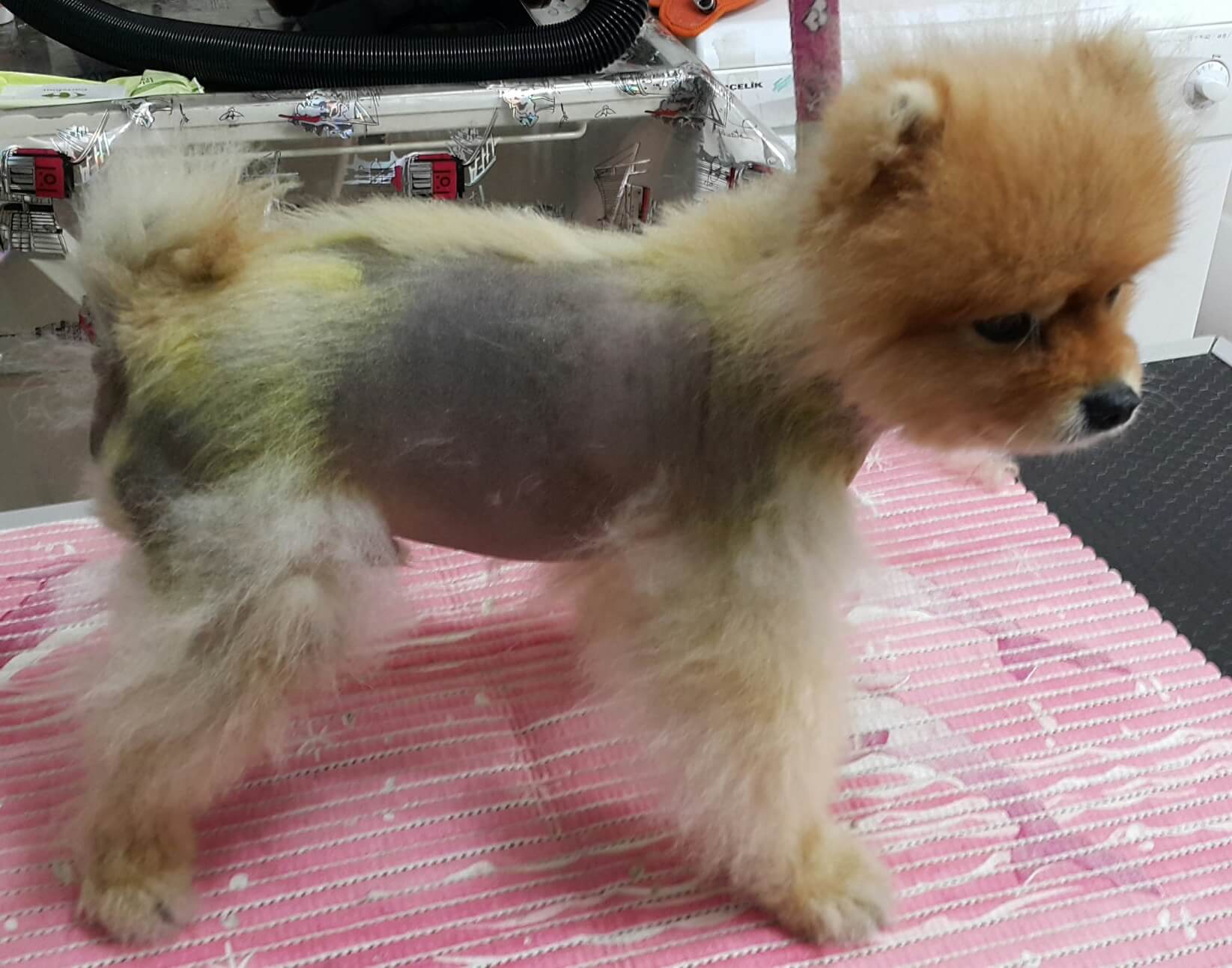
Pomeranian Alopesi & BSD Hastalığı Siyah Cilt Rahatsızlığı Black Skin Disease Loulou Pet
Introduction: "There is a long list of canine skin diseases and conditions that need to be considered before diagnosing the actual problem (see below for pictures and descriptions).

Black Skin Disease in Dogs Symptoms, Causes, Diagnosis, Treatment, Recovery, Management, Cost
Here are some of the most common dog skin problems photos and their description. 9 Common Dog Skin Problems 1. Dry, Flaky Skin Dry and flaky skin is also often referred to as itchy.

Why Does My Dog Have Black Skin? Causes and Treatment
Reviewed/Revised Jun 2018 | Modified Oct 2022 Hyperpigmentation is a darkening and thickening of the skin seen in dogs. It is not a specific disease but a reaction of a dog's body to certain conditions. Hyperpigmentation appears as light-brown-to-black, velvety, rough areas of thickened, often hairless skin.
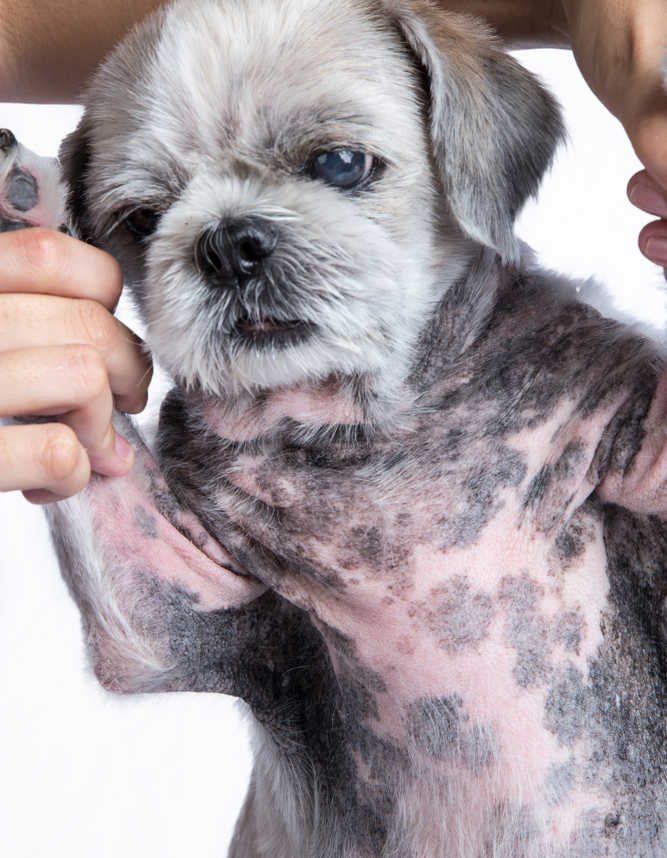
Black spots on the dog's skin our vet explains what to do (2022)
If you are struggling with dog skin problems, pictures can help determine what you might need to do to start getting your pet back to its happy and healthy self. Dog skin problems can leave pet owners feeling frustrated and often itching for answers about what is causing their pet's discomfort. The 10 Most Common Dog Skin Problems 1.
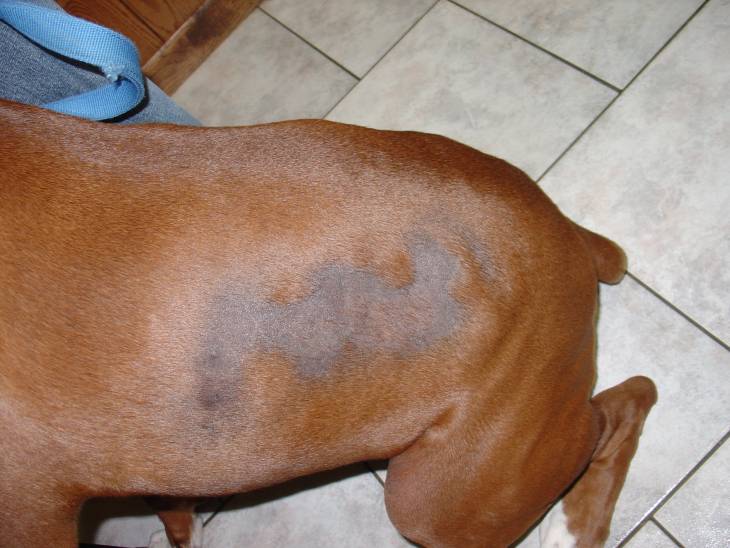
What Black Spots on Dog Skin Means (Should You Worry)
13 Common Dog Skin Lesions or Sores [with Pictures] Dog Illnesses, What's New Author: Dr Alex Crow, Veterinary Surgeon This article was updated on October 22nd, 2023 Skin lesions and sores come in different shapes and sizes, and some can be more harmful than others.
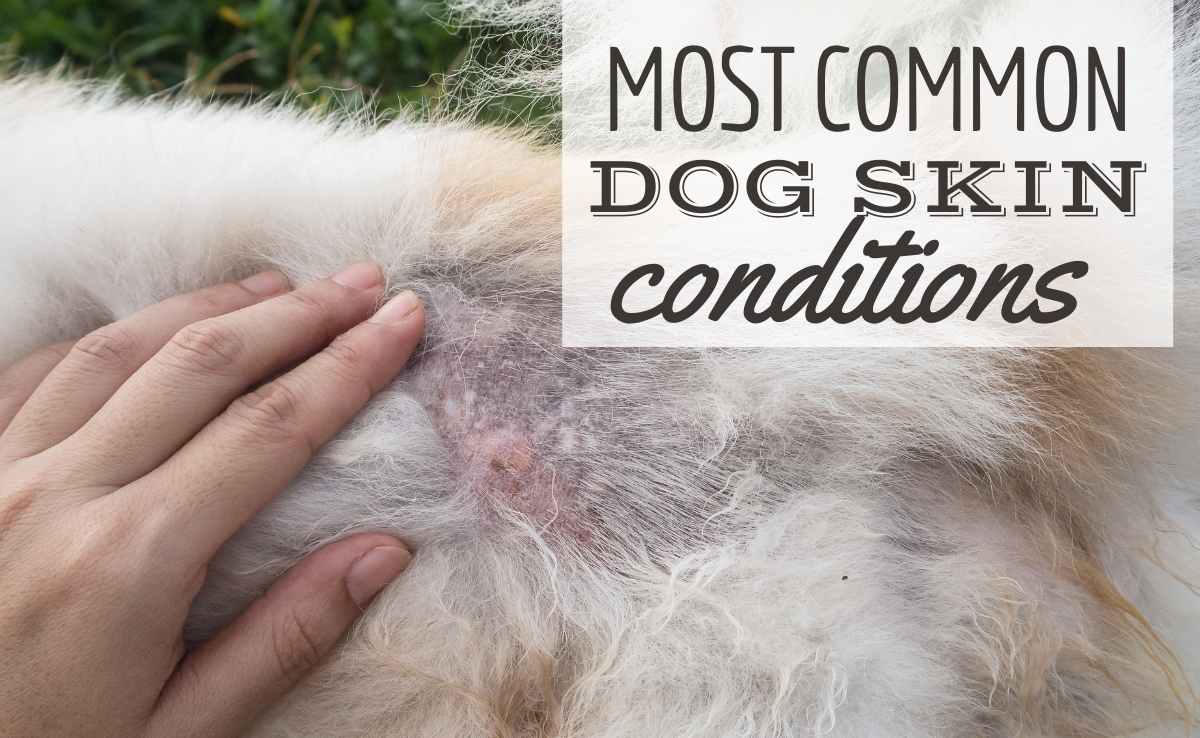
10 Most Common Dog Skin Conditions Canine Journal
WebMD has compiled images of some of the most common canine skin problems. Allergic Dermatitis 2 /19 Dogs can have allergic reactions to grooming products, food, and environmental irritants,.
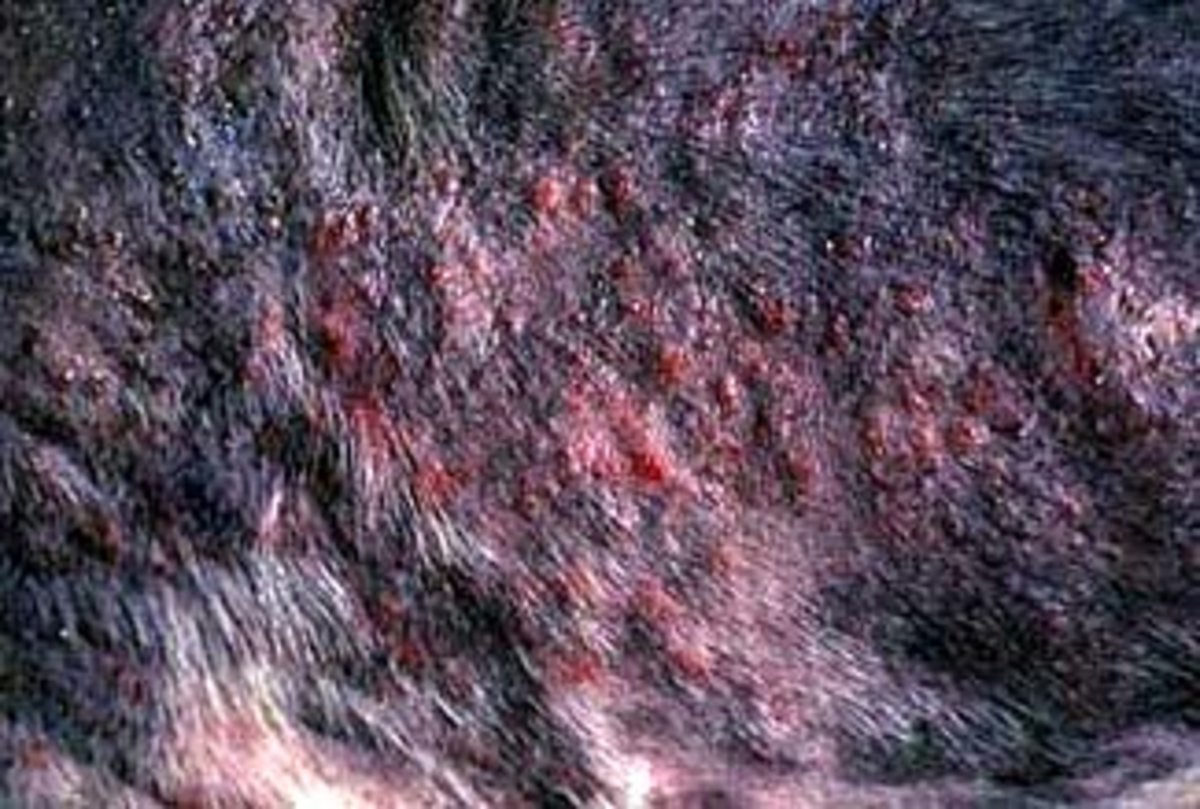
Dog Skin Disorders Causes, Symptoms, Types, and Breeds Prone to Them PetHelpful
The following are skin diseases, dermatitis, or problems most often seen in puppies or young dogs. Some of these skin problems can also be seen in adult dogs. 1. Puppy Vaginitis. Puppy vaginitis is an inflammation of the vagina in female puppies of unknown cause. Symptoms include mild redness around the vulva with white or yellow discharge that.

Black Skin Disease in Dogs (Alopecia X) Pet Care Guides
Black Crusty Skin Disease. If your dog isn't infested by fleas, he may be suffering from black crusty skin disease, otherwise known as alopecia X or pseudo-Cushing's Syndrome. The first symptom of black crusty skin disease is often hair loss. Typically, the dog's hair loss is symmetrical, shedding from his torso and the rear of his back legs.

My dog has black spots forming on his skin. At first, they appear to be some sort of black build
The skin's response to insult is generically called dermatitis and manifests as any combination of itching, scaling, abnormal redness, thickening of the skin, excessive coloring (pigmentation), abnormal odor, excessive oil, and hair loss. The usual progression of a skin disease involves an underlying trigger that causes boils, scabs, scales.

Why Is My Golden Retriever Skin Turning Black
1. Atopic Dermatitis This is a chronic, inflammatory condition that affects the dog's skin. It cannot be cured, and lifelong management is required. But a study published in 2021 is showing.
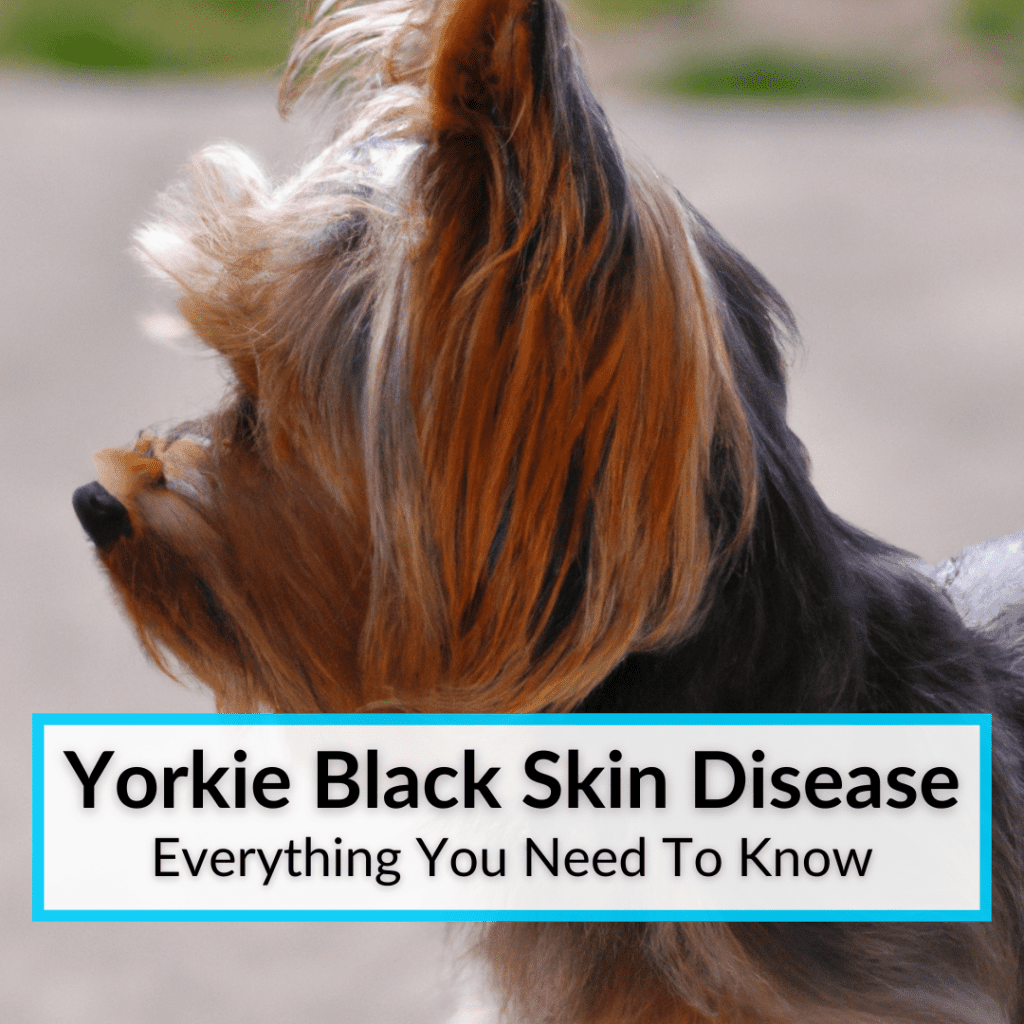
Yorkie Black Skin Disease (Everything You Need To Know)
The pictures below are of the abdominal skin of a dog. The skin is black in color and thickened like an elephant's skin. Although this dog developed it on the abdomen, it can also commonly occur around the anus, underarms and muzzle.

Black Skin Disease Husky
Sporotrichosis in Dogs. Sporotrichosis is a fungal disease that affects the skin, respiratory system, bones and sometimes the brain. Infection is caused by the virtually ubiquitous dimorphic (mold and yeast) fungus, Sporothrix schenckii, which typically infects via direct inoculation - that is, through abrasions of the skin or by inhalation.The origin of the fungus is environmental; it is.
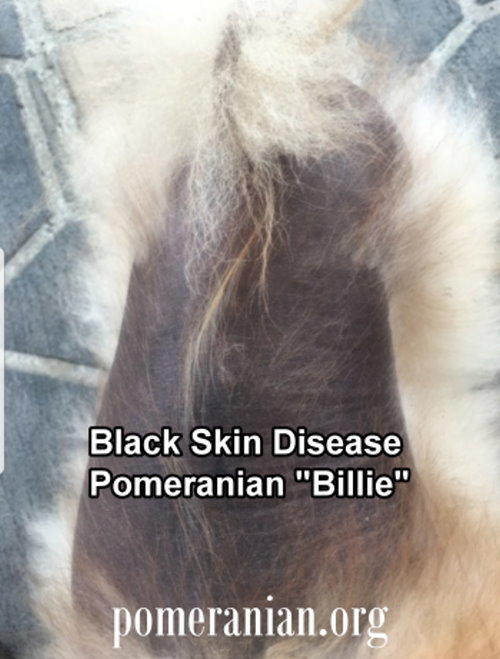
Black Skin Disease Pomeranian
1. Hot spots Hot spots on dogs Hot spots (technically known as acute moist dermatitis or pyotraumatic dermatitis) are red, inflamed areas that can seem to appear overnight. The skin is macerated, red, irritated, and moist with purulent (pus) oozing on the surface.